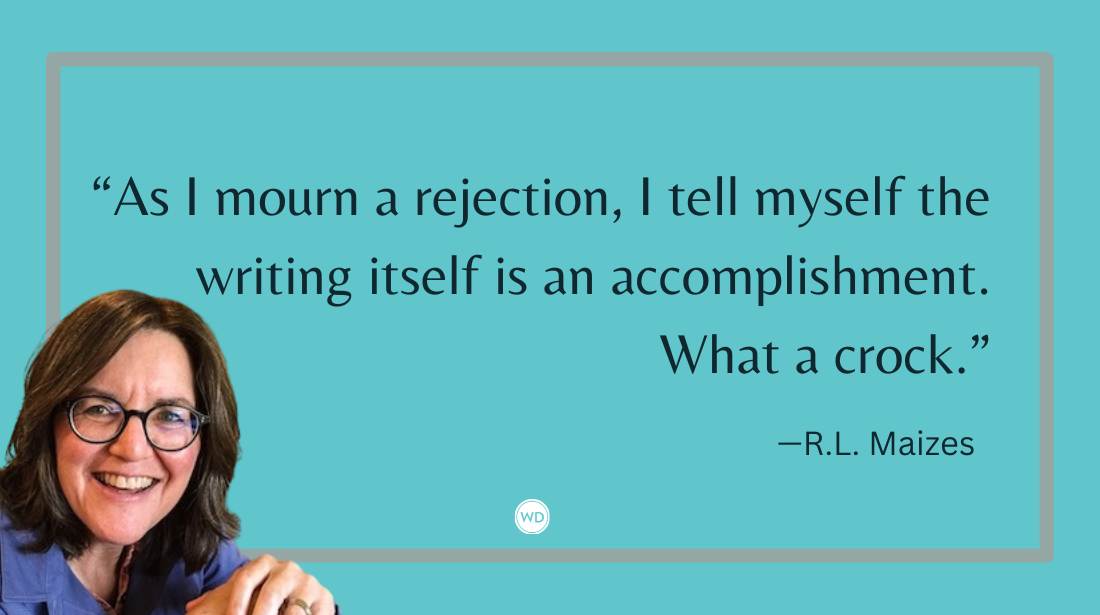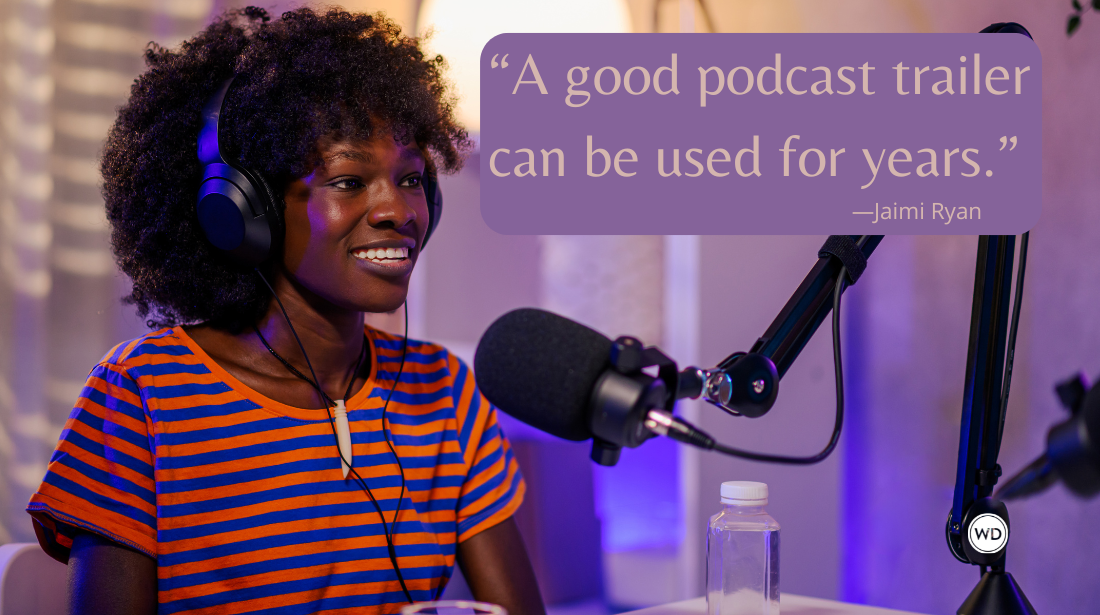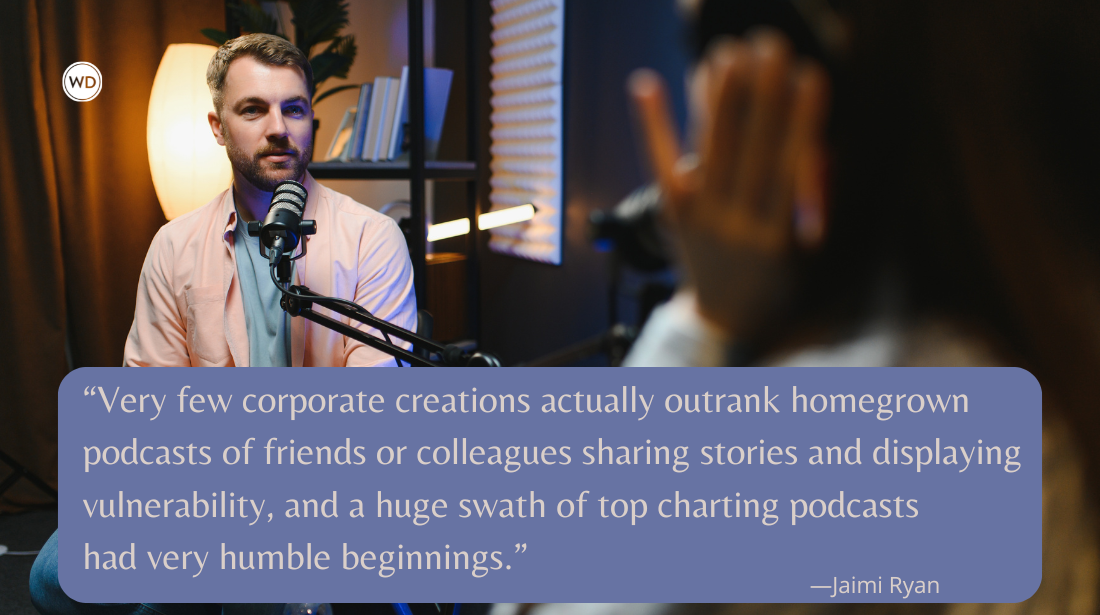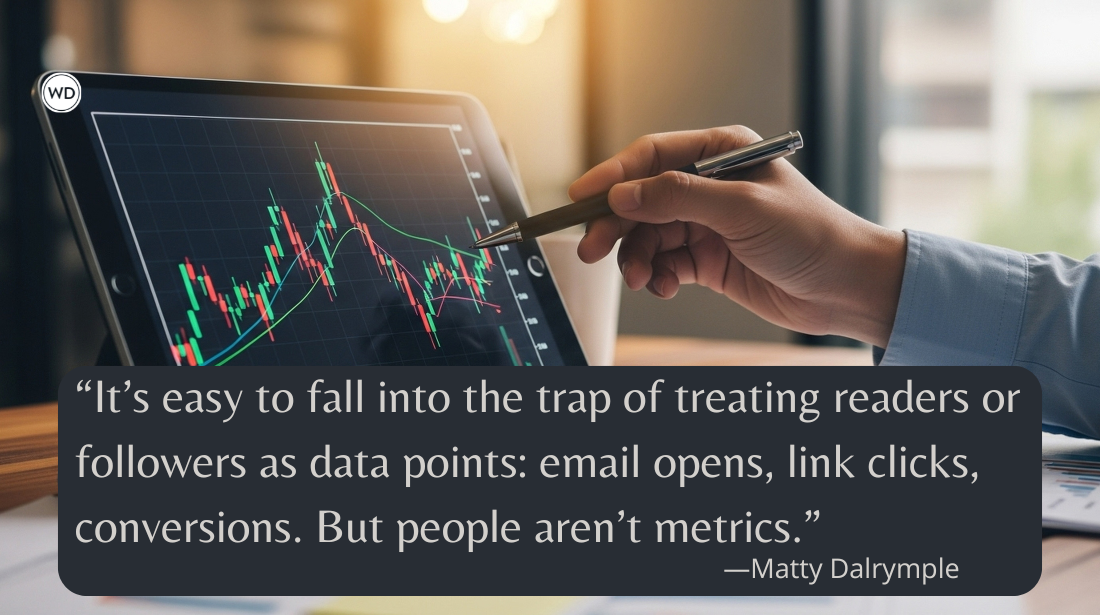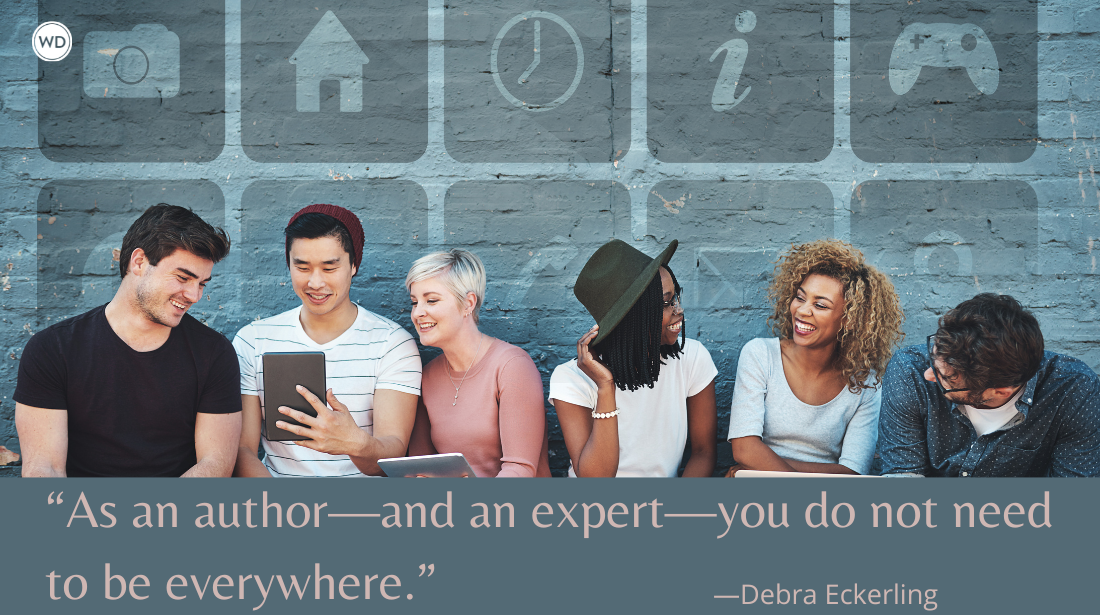You Can Learn As Much From Writing Friends as Writing Experts
Today’s guest post is by writer David B. Schlosser, who attended the 5th annual Killer Nashville literary conference. My thanks to him for summarizing for us the best information he…
Today's guest post is by writer David B. Schlosser, who attended the 5th annual Killer Nashville literary conference. My thanks to him for summarizing for us the best information he heard. Follow David on Twitter.
--
We’re all in this together. By “we,” I mean people dedicated to stories and the words authors use to tell them: successful authors, newly published and excited authors, regularly published but struggling authors, yet-to-be published authors, and readers.
Associations of writers like Killer Nashville are true communities, and you see it at events like this one: experienced authors offering advice and perspective to aspiring writers, for the low, low cost of opening one’s brain and heart to someone else.
Jeffery Deaver: Class Act
Jeffery Deaver was this year’s Killer Nashville guest of honor, and he opened his brain and heart in several large, small, and individual events throughout the weekend.
Whether you like, ignore, or envy his books—and whether you’re an outliner or a pantser (I won’t rat him out)—you need to know this about Jeffery Deaver: this guy is a class act. I’ve attended two conferences with him, a very small one and a large one, and he’s earned my admiration for his willingness to spend many, many hours sharing ideas, experiences, and advice with writers and authors of every ability and interest, from a podium and in personal dialogue.
In a couple of my previous careers, I worked and interacted with various types of humans most people consider famous. It’s a cliché, but a true one, that you can understand just about everything you need to know about a person by the way she or he treats a waiter. In my observation, Jeffery Deaver extends to everyone he encounters the same exceptional level of respect, courtesy, and good humor.
Pitch Sessions & Brushes With Fame
Some writers get nervous about meeting with famous authors, and with agents and publishers. (As a college student, I made an utter fool of myself trying to tell Gore Vidal I wanted to grow up and be a writer; he suffered me, but I don’t know if he’d say it was gladly.)
Like other conferences, Killer Nashville had individual pitch sessions for all the attendees to meet with one or more agents and publishers.
If you get nervous going into that kind of meeting, remember this: both people in the conversation care deeply about the literary art of sharing stories. If you proceed from that shared interest, you can’t go far wrong. No author, agent, or publisher is going to criticize you for wanting to share your story. And every author, regardless of success, can learn something from a conversation with another person who loves stories and writing so much that he or she dedicates his career or life to it.
How Long Can Your Book Be?
Several authors noted the unusual volume of questions related to how long a book should be. The answer, as with all things related to writing, is: “It depends on whether you can make it work.”
However, a few moments of online research will give you guidelines about how many words agents and publishers expect from various types of books (remember, no one counts pages until it comes to designing the book).
In the panel I moderated, I told the audience to put these words into their favorite search engine: <sambuchino writers digest word count>
I think a lot of the curiosity about this topic is driven by the trend toward e-book publishing. There aren’t any pages in e-books, so the question becomes deeply mysterious even in its asking.
In my opinion, e-book publishing will begin disrupting the word counts traditionally associated with p-books.
Publishers and authors will not necessarily be subject to the fixed costs associated with printing (number and size of pages, binding of various widths, etc.) and distributing (how many books fit in a box, in a stand-up display, or on an end cap) a book.
Also in my opinion, I think this is a positive trend. If an author can efficiently spin a great tale in 35,000 words and entertain readers, there’s no reason to pad that work by an extra 50,000 words to achieve a sense of perceived value on the part of a p-book buyer, or to optimize the economics of producing a book. With free e-book reader software available on all platforms, from PC to mobile phone, we’ll see this trend accelerate, for good or ill (and, when it comes to pricing, a lot of legacy publishers will become ill about this trend).
When I say “in my opinion,” what I mean is that I know exactly where the publishing industry is going. I met several people who agreed with me—they, too, know exactly where the publishing industry is going.
Seriously, though, one way it’s inarguably going is toward greater opportunities to affordably and easily self-publish.
The way that trend could turn ill is if writers rush to the opportunity to self-publish, electronically or in print, without careful consideration of their work.
It’s becoming common to refer to the ability to go from draft to “For Sale on Amazon!” in just a few hours—and it’s becoming common because it’s literally that easy.
However, writers who easily rush to sell books that haven’t had sufficient editorial attention, or haven’t been formatted to accommodate the peculiarities of (multiple, competing) e-book formats, will damage the ability of all writers to tell and sell their stories.
You Are Responsible for Promotion—and Quality Control
One message that came through loud and clear at the conference is that authors are increasingly responsible for promoting their work, whether or not they have earned a traditional publishing deal.
The corollary to that, particularly important for authors who choose to self-publish either in print or electronically, is that authors are also responsible for the quality of their work.
If, as a self-publishing author, you don’t get all your punkshooayshun and spe11ing right before going to market, you’re hurting yourself as well as all the other authors who want to take advantage of the same opportunities you’ll eventually deny them by distributing low-quality work. As Sgt. Esterhaus used to remind his Hill Street Blues, “Hey, let's be careful out there.”
The Most Enjoyable Part of the Conference
With all these people from the industry shoveling out all this free advice, the value of these kinds of conferences is apparent. But what I most enjoyed about attending Killer Nashville 2010 was the opportunity to spend time with the people I met—the friends I made—at Killer Nashville 2009. During the past year, we’ve corresponded, Facebooked, Tweeted, phoned, and—despite our significant geographic dispersion—met in person. We’ve shared our successes and setbacks, our ideas and ideals, our frustrations and inspirations.
One thing I think all my friends agree on is:
It’s important to take people who claim to be experts with a grain (if not a shaker) of salt.
I moderated a panel on editing and revising your own work (something on which I consider myself enough an expert to write and publish a monograph on the subject) with panelists that ranged from a wildly best-selling author with an
11-book series to a self-published author. We concluded the panel with a question about when you know it’s time to stop revising; the panelists’ consensus response settled “about the time the paper starts going through the press.”
But the best advice on revision came from an unpublished author the following day. One of the session’s attendees told me the time to stop revising is when you’re merely changing your manuscript instead of making it better. She’s right; our collective expertise might not have been wrong, exactly, but it was too flippant.
Also: I Am Easily Disarmed
Lee Lofland, a retired cop, an author of the
indispensable reference on police procedure and investigation, and a
consultant to crime writers, did a session on police defensive tactics
and officer survival.
He invited people to practice on me, and show everyone how easy it is to disarm me. Lee was kind enough to
put some pictures on his blog, The Graveyard Shift. (Example below.)
Finally, and without getting too gushy, literature is an amazing way to prove how small a world we occupy. I, from Davidson, North Carolina, was sitting in a hallway in Franklin, Tennessee, discussing e-book options with an aspiring writer from Detroit Lakes, Minnesota, when a familiar voice whispered into my ear, “Is that the real David Schlosser?”
That voice belonged to my freshman debate partner from high school in Topeka, Kansas. She, her husband, and their lovely two-year-old daughter came to Killer Nashville from their home in Lawrence, Kansas, because his manuscript was in contention for the Claymore award for the best unpublished and uncontracted manuscript. Although she and I correspond telephonically and electronically, I hadn’t seen her in more than 20 years. That made it a very special weekend for me, as well as for my Kansas friends, and all the award winners (details here).
--
David extends his thanks to Clay Stafford and Beth Terrell, who—along with about 20
other volunteers—dedicate countless hours and their blood, sweat, and
tears to organize this outstanding and embiggening event (this year,
more than 400 attendees and more than 120 pitches to agents and
publishers).
Jane Friedman is a full-time entrepreneur (since 2014) and has 20 years of experience in the publishing industry. She is the co-founder of The Hot Sheet, the essential publishing industry newsletter for authors, and is the former publisher of Writer’s Digest. In addition to being a columnist with Publishers Weekly and a professor with The Great Courses, Jane maintains an award-winning blog for writers at JaneFriedman.com. Jane’s newest book is The Business of Being a Writer (University of Chicago Press, 2018).




